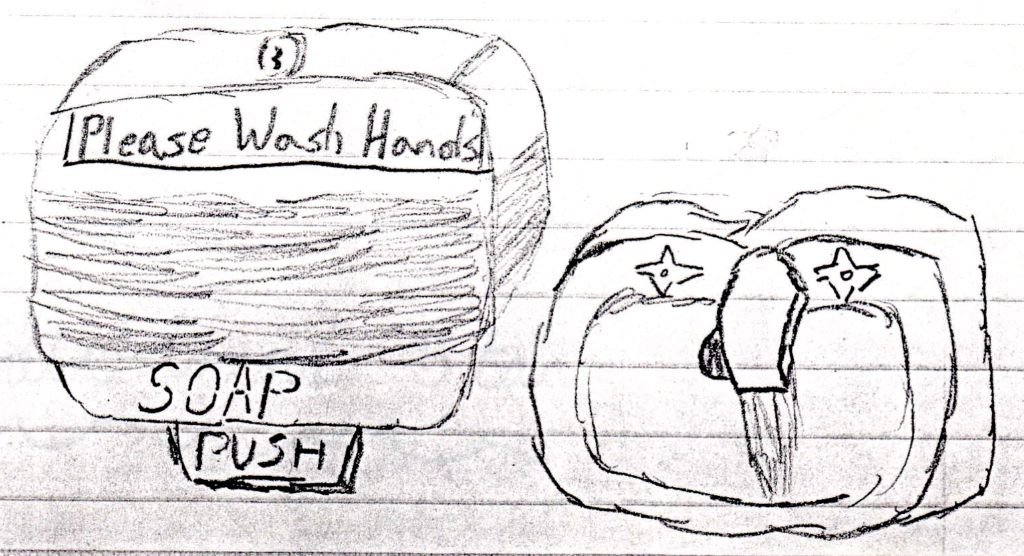For various reasons, I don’t have a lot of old stuff to my name. Historical records of the personal kind. Memorabilia. Snapshots of where I came from. And I generally think that’s okay. I don’t see a lot of usefulness in staring into the past. Learning histories from before me is good and useful, but holding onto my own personal history seems almost pointless. Though, it can be kind of neat. It can be fun to see progress from who we used to be.
Case in point, I came across one of my oldest-recorded stories the other day. Shown in the image above, I wrote a short story about a cold germ. I remember this was a project set to music. The teacher, her name terribly unremembered, put on some music and asked us to think through the feelings we felt. Then, each student wrote a story based on those feelings. It’s a fun method for writing that I still use. Though, nowadays I am more inclined to put on some tunes that fit the scene I’m trying to write.
Anyway, for giggles, here’s that story all transcribed into the digital world. For amusement, I’ve kept all grammatical and spelling errors intact.
A Soapy Death
A Story written to Music
January 25, 1996
I, the cold germ, will tell you a story told also by my father… A volcano erupts. The boiling lava flows, and there is a giant explosion. More volcanoes erupt. Then, slowly one by one, the volcanoes die out.
Then, as by magic, plants, animals, and water sprout out. Some animals fight, some hide, some watch. Strange, two legged creatures, build a great wall. Then as the work, and fights stop, it rains.
Finally, the rain stops, animals run and play in the sun. They frolic upon the meadows. Then, the ground rumbles. Suddenly, the ground cracks. The mighty wall that held back the water also cracks and rumbles down in a flood of water.
Many animals flee to a plateau, while others are tossed air in a wave of water. I hitch a ride on a strange flying crature with no wings. When the creature goes a few more yards, it lets down a strange silk, and pulls up a two legged creature. The flying creature lands and two leggers walk out.
I jump on one, and am carried into a cave with a red imprint on the side. I am then carried inside, which has a path. I look back, and the entrance of the cave has dissapeared. Then the creature goes through another hole. He moves his hands toward a ditch coming out of the wall. He fills it with water and puts a liquid on his hand. Then, …. That is where it ends.
Somehow, my great grandpa died, how, that is the question.
And that’s it. Something that probably took me a while to write was just five paragraphs. Maybe I was limited to a five-paragraph format or some kind of time constraints? I do remember that the teacher read all of the stories out loud. I imagine someone has that recording somewhere, but not me.
But, I enjoyed reading this old piece of me. It’s fun to see where my mind was, and I like the idea of writing from the perspective of a germ. I’m also kind of surprised that I was thinking of a story from the perspective of an oral history. I end up wondering if I was reading or watching something with a similar idea at the time. Too bad about my old self’s bum grammar and spelling, but at least I’ve improved that somewhat right?
Overall though, these kinds of glimpses into our past selves are probably worth the time. I don’t feel especially illuminated by the exploration, but I did gain that sense of progress I mentioned. Like going on a long hike, sometimes it’s nice to turn around and see how far we’ve gone.

